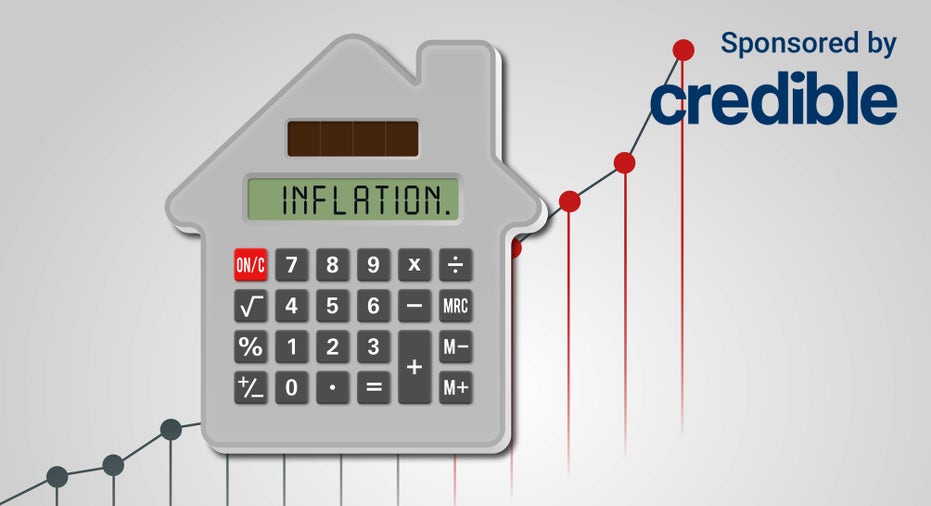Claim payouts are getting too high for insurers’ bottom lines, causing social inflation. (iStock)
Consumers aren’t likely to see their insurance rates go down this year, according to a Morgan Stanley report. The last few years have been rocky ones for the insurance industry. Social inflation rose higher than traditional economic inflation.
Social inflation describes the phenomenon when insurance claims costs are increasing more quickly than the standard rate of inflation. For insurers, dealing with this inflation is becoming increasingly more difficult as claims and payouts for those claims rise.
Case clearance rates have risen in general, but certain states, such as California, face a mountain of cases and ensuing award amounts that make social inflation particularly difficult, according to the Morgan Stanley report.
It’s these large award amounts that are causing the greatest issues. The national average jury award amount in 2023 was about $57,000, according to preliminary data in the Morgan Stanley report. While that is a slight decrease from 2022, it’s still extremely high and only the second time since 2012 that awards averaged more than $50,000.
Unlike jury-settled cases, civil insurance case settlements rose last year. Amounts went up by 3% to a little over $37,000, on average. Most of these cases moved to settlements so that insurance companies could avoid going to trial.
To save big on insurance, it’s important to compare several companies, as well as their coverage, before signing up for a policy. Credible’s insurance marketplace simplifies this process by allowing you to shop multiple providers at once.
NEW CAR PURCHASES ARE ON THE RISE, BUT THERE ARE INSURANCE IMPLICATIONS
Both auto and homeowners insurance rates expected to rise in 2024
Multiple sectors of the insurance industry are feeling the pinch of increased claims and legal cases. To deal with industry losses, higher auto and home insurance premiums get passed on to consumers.
Car insurance costs are expected to increase in 2024 by 12.6% throughout the U.S., a ValuePenguin report shows.
Nevada will see the highest increase, with rates expected to go up by 28%, followed by Washington state with an 18% increase. Every state is expected to see a slight increase of at least 5%. The only states that won’t see this level of rate increases are Colorado, Hawaii, Idaho and North Carolina.
Homeowners insurance rates aren’t doing any better than auto insurance rates, with many states reporting high premium spikes, and even more on the horizon.
In North Carolina, the North Carolina Rate Bureau filed a rate filing at the beginning of January asking to increase homeowners insurance rates by 42.2% across the state. The rate, if passed, would go into effect on August 1.
California is expected to see a rate increase this year as well, with its largest insurer – State Farm – likely to raise its rates by 20%, a San Francisco Chronicle article reported.
“These rate changes are driven by increased costs and risk, and are necessary for State Farm Mutual Automobile Insurance Company and State Farm General Insurance Company to deliver on the promises the companies make,” a State Farm statement responding to the increase reported.
Comparing multiple insurance quotes can potentially save you hundreds of dollars per year. Visit Credible to compare quotes for free without affecting your credit score.
AUTO INSURANCE PREMIUMS RISE AS CAR THEFTS AND FALSE INSURANCE CLAIMS INCREASE
How to beat high insurance rates
Despite high insurance rates, there are steps consumers can take to lower their insurance premiums and make homeownership and vehicle ownership more affordable. The steps below offer a few ways consumers can take advantage of lower rates on both home and auto insurance:
- Bundle insurance products: Insurance companies often provide a substantial discount when customers use the same company to insure their home and vehicle.
- Take advantage of discounts: To attract loyal customers, insurance companies offer long lists of discounts that reward good driving, veteran status, good students and a myriad of other actions.
- Maintain a responsible driving record: For auto insurance, premiums are partially determined by a driver’s driving record. The cleaner the record, the better this reflects on insurance rates.
- Fix credit issues: Insurers look at the credit scores of those they insure and may partially base their decision on the state of the driver’s credit. Those with higher scores often get better premiums.
- Take defensive or safe driving courses: To lower auto insurance rates, customers can take defensive and safe driving courses that make them more responsible drivers. These look good to insurance companies when they decide on premiums.
- Opt for cars that are cheap to insure: Cars like Subarus, Toyotas and Hondas are cheaper to ensure because they have more safety features and get in fewer accidents. Opting for low-to-insure cars can save drivers quite a bit over the life of the vehicle.
- Upgrade home and vehicle protections: Adding security features to homes and opting for cars that have extra safety features can help customers earn discounts through insurers. Having these features helps prevent claims, saving insurance companies money.
Shopping around every few months for insurance also helps ensure you’re getting the best rates. Head to Credible to get a better understanding of the different types of home and auto insurance coverage and check your rate in a matter of minutes.
JANUARY IS AN IDEAL TIME TO REVIEW YOUR INSURANCE POLICIES
Have a finance-related question, but don’t know who to ask? Email The Credible Money Expert at moneyexpert@credible.com and your question might be answered by Credible in our Money Expert column.
Credit: Source link




